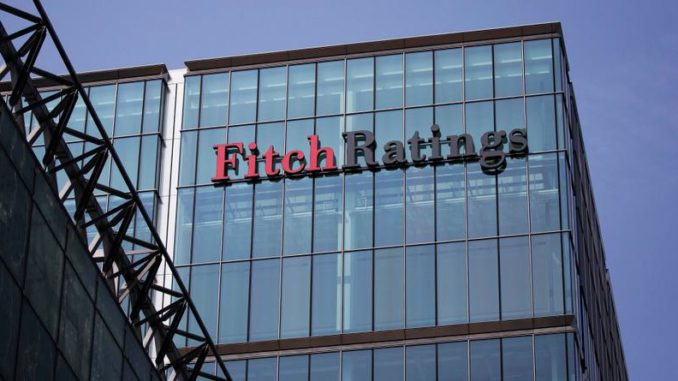Fitch Ratings has provided a positive outlook on the Nigerian banking sector’s recapitalization efforts, stating that the banks are largely on track to meet the Central Bank of Nigeria’s (CBN) deadline of March 2026. The CBN’s mandate requires commercial banks with international licenses to attain a minimum capital of N500 billion, while national commercial banks must reach N200 billion, and regional commercial and merchant banks must secure N50 billion. Banks have been presented with three primary avenues for compliance: equity injections, mergers and acquisitions, or adjustments to their license type. Fitch’s assessment highlights the significant strides made by rated banks, with most either having already bolstered their capital or formally initiated the process to do so. This progress reinforces the sector’s recovery from the impact of the naira devaluation, provides a stronger foundation for business growth, and diminishes the likelihood of widespread consolidation.
Fitch’s commentary details the varying approaches taken by different tiers of banks. Leading institutions like Access Holdings and Zenith Bank have successfully secured sufficient capital to satisfy the international license requirements. Other large banks, including First HoldCo, United Bank for Africa, and Guaranty Trust Holding Company, are pursuing a phased approach, involving recent capital raises and pending shareholder approvals for further injections to meet the N500 billion target. First HoldCo and United Bank for Africa are awaiting final regulatory approval for their recent rights issues. Second-tier banks, such as Fidelity Bank and FCMB Group, have completed initial capital raisings but face the challenge of needing more substantial increases relative to their balance sheets to maintain their international licenses. They have shareholder approval for further fundraising but might consider downgrading their licenses given their limited international presence.
Smaller banks have demonstrated diverse strategies. Ecobank Nigeria and Jaiz Bank required relatively modest capital injections and have already met the requirements. Though Ecobank Nigeria is reportedly still working towards meeting its total capital adequacy ratio, it has further plans for capital raising. Stanbic IBTC Holdings has initiated a rights issue to maintain its national license. Meanwhile, Union Bank of Nigeria, which also falls short of the capital adequacy ratio, and many third-tier banks have been slower to raise capital. Wema Bank has secured shareholder approval for a capital raise aiming to retain its national license, with plans to commence the process in April. Coronation Merchant Bank has recently received board approval for a capital raise. The status of Union Bank of Nigeria and other unrated third-tier banks in terms of securing necessary approvals remains unclear.
The overall sentiment from Fitch’s commentary is one of cautious optimism. The healthy investor appetite has contributed significantly to the success of most capital-raising initiatives to date. This suggests that the majority of first and second-tier banks will likely achieve their capital requirements through equity injections, minimizing the need for mergers or acquisitions. Consequently, the prospect of significant consolidation among these institutions has decreased. However, the situation for third-tier banks presents a contrasting picture.
For third-tier banks, mergers and acquisitions, alongside license downgrades, remain more probable. The smaller size of these banks, coupled with potentially limited access to capital markets and the relatively high cost of compliance with the new capital requirements, makes these options more attractive. Mergers can create larger, more robust entities that can better compete in the market and meet the regulatory requirements. Alternatively, downgrading licenses to national or regional levels can reduce the capital burden while allowing banks to focus on their core domestic operations.
Fitch’s analysis underscores a significant shift in the Nigerian banking landscape. The push for recapitalization is strengthening the financial stability of the sector, promoting growth, and encouraging greater efficiency. While the larger banks appear well-positioned to navigate these changes, the future of smaller banks remains less certain. The next few years will be crucial in determining the final shape of the Nigerian banking sector as these institutions adapt to the new regulatory landscape. The options chosen by the third-tier banks, whether mergers, acquisitions, or license adjustments, will significantly impact the overall structure and competitiveness of the Nigerian banking industry. The CBN’s efforts to strengthen the sector are likely to lead to a more resilient and stable banking system, but the path to achieving this objective will involve significant transformations, particularly for smaller institutions.


